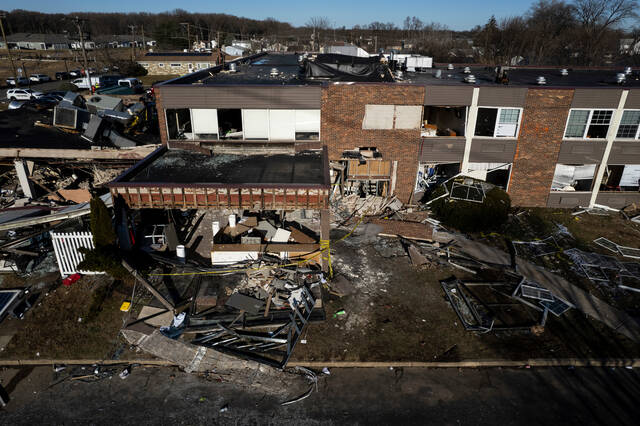Aug. 28 will mark the third anniversary of Libre’s Law, an anti-cruelty measure that strengthened the protection of animals in Pennsylvania.
The 2017 law, also known as Act 10, was inspired by Libre, a Boston terrier puppy found badly neglected and abused in Lancaster County. Its passage increased penalties for animal abuse, including giving law enforcement the ability to file an aggravated animal cruelty charge as a felony.
“Among some of the changes to Pennsylvania’s previous animal cruelty laws (are) stricter tethering regulations, harsher penalties for certain animal abuse offenses and the requirement that anyone convicted of an animal abuse offense forfeit their animal(s),” the Unified Judicial System of Pennsylvania said in a statement.
According to statewide data on reported animal abuse cases from Aug. 27, 2017, to Dec. 31, 2019, 52% of animal abuse offenses were for neglect of an animal, 41% for cruelty to an animal and 7% for aggravated cruelty to an animal.
There were 21,206 such offenses filed in Pennsylvania during that span.
Allegheny and Westmoreland counties ranked in the top 10 for the highest number of animal abuse cases.
Allegheny County was No. 1, with 13% of the state’s total cases. Bucks County, ranked second, had 5% of reported cases, and Montgomery County was third with 4%.
Westmoreland County, which accounted for 3% of reported cases, ranked fourth along with Delaware, Fayette, Luzerne, Philadelphia, Somerset and York counties, according to court data.
Rob Fredley, supervisor of South Hills Cooperative Animal Control, which covers 14 municipalities, is a former Humane Society police officer who provided animal abuse training to municipal police officers.
Fredley believes that while 13% sounds accurate for Allegheny County in terms of reported cases, there could be at least 25% of cases that go unreported.
“There are counties that don’t have Humane Society police officers,” said Fredley, of Brookline. “There’s definitely abuse going on (in other counties) but, without training and skilled officers, I don’t think that’s being reported or even cited due to lack of education.”
Fredley explained that municipal police officers don’t receive animal cruelty training as a part of the Pennsylvania Police Academy.
“The numbers are reflecting the training that’s been done and the number of animal cops that used to be in (Allegheny County),” Fredley said. “It’s a high statistic, but a low number when it comes to the totality of what’s actually happening.”
As an officer, Fredley has seen a connection between abuse against people and animal abuse. He said some of it isn’t caught because officers must be “invited” into the home.
“When I was working the streets, a lot of eyewitnesses didn’t want to get involved or wanted to remain anonymous,” Fredley said. “Unfortunately, the animals can’t talk, and cases go unsolved or uncharged.”
Fredley believes that, to catch more animal abuse cases, education must be increased.








